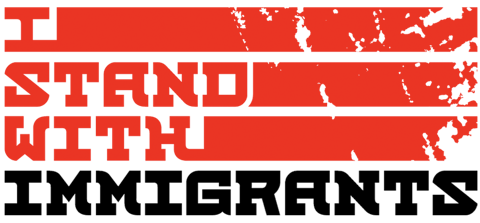Susanna & Bruce
“I knew all my life that I had a spirit that was different than what people around me had. I wanted things to be different in the world. I saw injustice, I saw the pain and I knew that I couldn’t fight against that in the system that I lived in. I could not stay there because I would become a wife and have children and my life would be done forever. I thought if I moved away, I could try to become something else.”
Susanna’s Story:
I was born in Mexico. My mother is from Zacatecas, and my father is from the border. I came to the United States when I was 19 years old because I wanted to have a life that was different than what I had. I wanted to go to school, and I wanted to learn English. My mother didn’t want me to leave. My father left my mother with five children when I was about seven years old, and so, my mother raised us all by herself. She didn’t want me to leave, but I talked to her and I said, “I’m going to go anyway, so I’d like you to support me.” My mom is a very strongwilled woman, but she came to terms with the idea that I was going to do it anyway. She thought it might as well be on good terms, and she let me go.
I knew that all my life that I had a spirit that was different than what people around me had. I wanted things to be different in the world. I saw injustice, I saw the pain and I knew that I couldn’t fight against that in the system that I lived in. I could not stay there because I would become a wife and have children and my life would be done forever. I thought that if I moved away, I could try to become something else.
I found that the United States was not the land of milk and honey that I had seen in the cartoons and the TV programs exported to Mexico. It was very harsh living here, and it was very difficult to make it on four dollars an hour. I was lucky because I was making more money than what my other friends were making. Many Central American people from Guatemala and El Salvador were fleeing violence in their countries, and the United States was involved in many of these uprisings, or socalled uprisings. People were fleeing the bloodshed in El Salvador and Guatemala, and many were indigenous Mayan people.
I saw that just by virtue of being able to speak some English and having had a little more education, I was treated differently by White people. That just fueled my desire to do something different. I never saw myself as any better than my other friends. I saw how peasants like my mom and my dad would be treated if they had come to the United States.
I consider myself a Chicana because although Chicano identity indicates that you were born in the United States and are of Mexican ancestry, I firmly believe that Chicana is a political identity. You can’t have a Chicana without a Mexicana first. I’m a Mexicana first, and then out of my political beliefs, I’m a Chicana.
Bruce’s Story:
I can’t really say that I know about my heritage through any sort of lived experience, the only way I know anything at all is because it was verbally described to me. There’s no celebration of ethnic holidays or interpretation of holidays in my life. It was only ever Halloween, Christmas, Easter. No cultural traditions, no social dance traditions, nothing like that. What I know, what I’ve been told, is that on my mother’s side it’s overwhelmingly German, almost all from southern Germany. On my father’s side of the family there’s some Irish and some English and some German there too.
I’d say the strongest memory that I have of a consistent discussion of ethnic heritage would be my mother telling me that we were descendant of a long line of heavy German drinkers. Other than that, it wasn’t something that was really discussed. There was never any religion in my family either. Religion at least can sometimes tie you to older cultural or ethnic traditions depending upon the church or the particular way you practice, but I never had a religious tradition in my family growing up. In some sense, there was a real absence of traditional religious cultural practices, and more of the adopting of a world influenced by commercialism and capitalism. But even that wasn’t my family, it’s not like we lived a very commercial life.
#CELEBRATE IMMIGRANTS
We all know someone with an immigration experience or have an immigrant heritage story of our own. Join us to stay updated as we #CelebrateImmigrants across the country!

